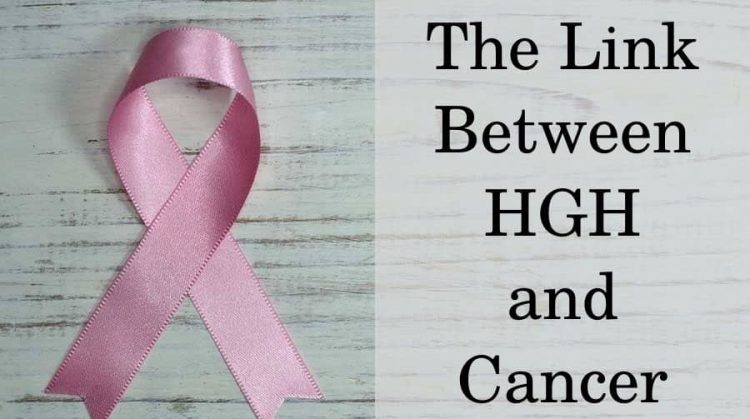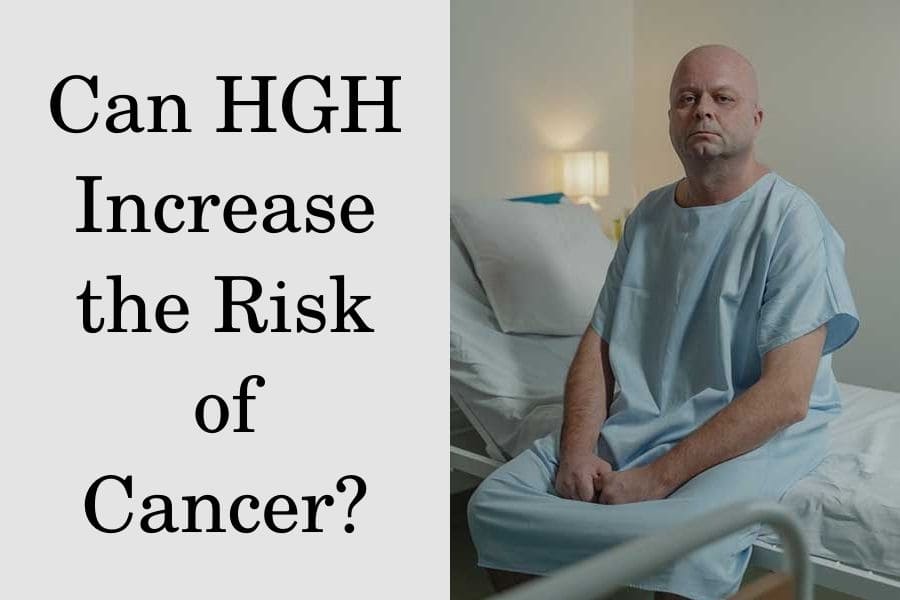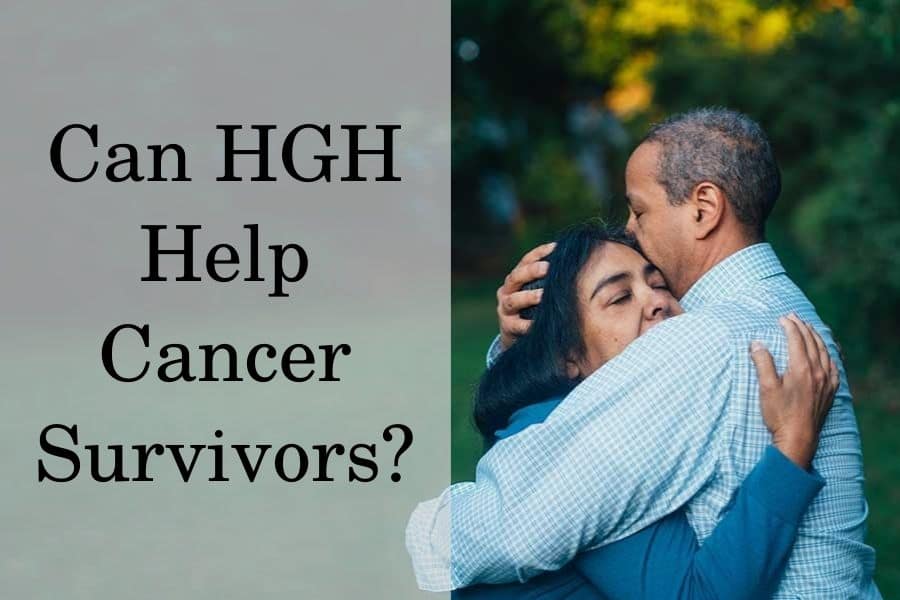
The therapy with human growth hormone (HGH) has been long associated with various adverse reactions and risks. The majority of these side effects have been observed due to the misuse of the medication as a performance-enhancing drug.
The use of illegal HGH products has also caused a lot of misinformation regarding the risks of the therapy, including beliefs that it can cause cancer, shorten life, make you sterile, etc.
In reality, side effects are extremely rare when the therapy is used under strict medical control and according to its correct indications.
While patients often express concerns about the possible link between HGH and cancer, science has not shown a clear and undoubting connection between the two.
What is more, the majority of recent studies report a lack of any connection when using modern HGH forms and dosing in patients without a previous history of cancer.
Does taking HGH cause cancer?
The concerns related to HGH and cancer stem from the fact that the hormone and its main anabolic metabolite called insulin-like growth factor 1 (IGF-1) can increase cell survival and speed up multiplication.
This limits the time for DNA repair and may increase an already present risk of cancer. Yet, HGH and IGF-1 hormones are not carcinogenic which means they can’t cause mutations and induce cancer.
Furthermore, if you have growth hormone deficiency (GHD) you are not at a higher risk of cancer when treated with HGH. The therapy may only raise the risk in the case of a previous history of cancer.
What is more, a meta-analysis of 9 trials with a total of 11 191 participants found a lower risk of cancer in GHD individuals who underwent HGH therapy.
These findings are in line with other studies that reveal an increased risk of colorectal cancer in untreated patients with acquired GHD.
The link between HGH and cancer risk is much more complicated in patients with rare conditions where the body produces too much growth hormone such as acromegaly.
Malignancy is currently the main cause of death in those patients, and they may be at an increased risk of thyroid, colorectal, and breast cancer
Concerns have also been raised for patients who are treated with HGH therapy since childhood. There are several observational studies investigating the consecutive cancer risk and incidence during adulthood.
The biggest one of them is a cohort study which included almost 24 000 participants from 8 European countries. Overall the results do not support a link between HGH therapy in childhood and increased risk of cancer.
The rest of the studies also reported mixed results, without showing a clear link between HGH treatment and increased risk in patients without a previous cancer history. Yet, cancer survivors had higher mortality with higher HGH doses.
Despite these findings, HGH is likely safe in patients who have been definitely cured of cancer. Treatment does not increase the risk of recurrence of benign or malignant brain tumors. In fact, HGH is commonly used in such patients since the therapy of brain tumors often leads to GHD.
On the other hand, HGH must be avoided if you still have an active malignancy. Studies report that IGF-1 speeds up cancer growth by stimulating cell replication and neovascularization.
Can other forms of HGH cause cancer?
There are a large number of over-the-counter (OTC) products and supplements claiming to boost natural HGH production. The most common formulations include oral supplements such as Serovital, Nugenix GH-Boost, or GF-9.
Concerns related to cancer and HGH supplements are related to their quality and ingredients rather than their effects on growth hormone levels. These products do not contain HGH and the majority of them are ineffective in boosting the natural synthesis.
Yet, due to the large variety of ingredients and the lack of control, it’s impossible to state whether HGH supplements may or may not increase the risk of cancer.
For example, the most popular ingredient in oral formulations is amino-acid arginine. Studies are inconclusive on its effectiveness in increasing natural HGH production. It may lead to a short-term increase, but also attenuates the natural HGH production during physical activity
Furthermore, arginine may have an effect on cancer risk and growth that’s entirely independent of HGH. The amino acid boosts the activity of immune cells that fight cancer.
On the other hand, arginine is also needed by many cancers for their growth. Besides, arginine produces NO (nitric oxide) which increases neovascularization. Therefore it’s not clear if arginine is more beneficial or more harmful for cancer patients.
The role of HGH in different types of cancer
The role of the human growth hormone has been widely investigated in different forms of cancer. Historically, one of the first concerns related to HGH was regarding the risk of leukemia since the therapy was mostly used in children.
Currently, trials have disproven these concerns and report that the risk of leukemia is not increased after long-term HGH therapy. Yet it will likely speed up the progression of leukemia if used while the disease is active.
HGH can also enhance the growth of other forms of cancer if used while they are still active
For example, a form of skin cancer called melanoma is one of the most aggressive malignancies affecting men and women. HGH treatment during active melanoma can further speed up its invasion and metastasizing.
The most common forms of cancer in men include prostate and colorectal cancer. Research reports that HGH therapy may stimulate metastasizing in prostate cancer. In colorectal cancer, the hormone is shown to increase its survival and the ability to invade other tissues.
In women, GH has been shown to enhance breast cancer cell proliferation, survival, migration, invasion, and neovascularization. Studies report that genetic traits associated with HGH receptors in breast tissues are considered a major risk factor for breast cancer.
Furthermore, IGF-1 appears to protect thyroid cancer cells against death and promote the progression of the disease. The hormone may also play a role in the risk of lung cancer. Some of the genetic factors predisposing to lung cancer are related to GH and IGF-1 signaling.
Currently, blocking the HGH and IGF-1 receptors in cancer cells is under investigation as a potential aid in cancer treatment. For example, scientists have shown that blocking growth hormone receptors slows down the growth and metastasizing of pancreatic cancer.
Can HGH help cancer patients?
According to official guidelines, HGH is contraindicated in patients with active cancer. Using the therapy in such cases will likely speed up the progression of the malignancy.
Furthermore, the hormone may increase the survivability, growth, and metastasizing of existing cancer which will reduce the effectiveness of the oncological therapy.
HGH injections can’t be used during chemotherapy, radiation therapy, or another oncological treatment
Cancer cells are also known to develop resistance against chemotherapeutics which is a significant problem in modern cancer therapy. Evidence reports that HGH may help malignant cells become resistant much faster.
Therefore, scientists are currently investigating the effectiveness of blocking the growth hormone receptor to improve the success of anticancer drug therapy.
On the other hand, patients with brain tumors often develop GHD due to the disease itself of radiation treatment that has damaged the pituitary gland.
If natural GH production is down after successful and definitive cancer treatment, HGH therapy can help alleviate the debilitating symptoms of low growth hormone and improve the quality of life in those patients.



 Request Appointment
Request Appointment





